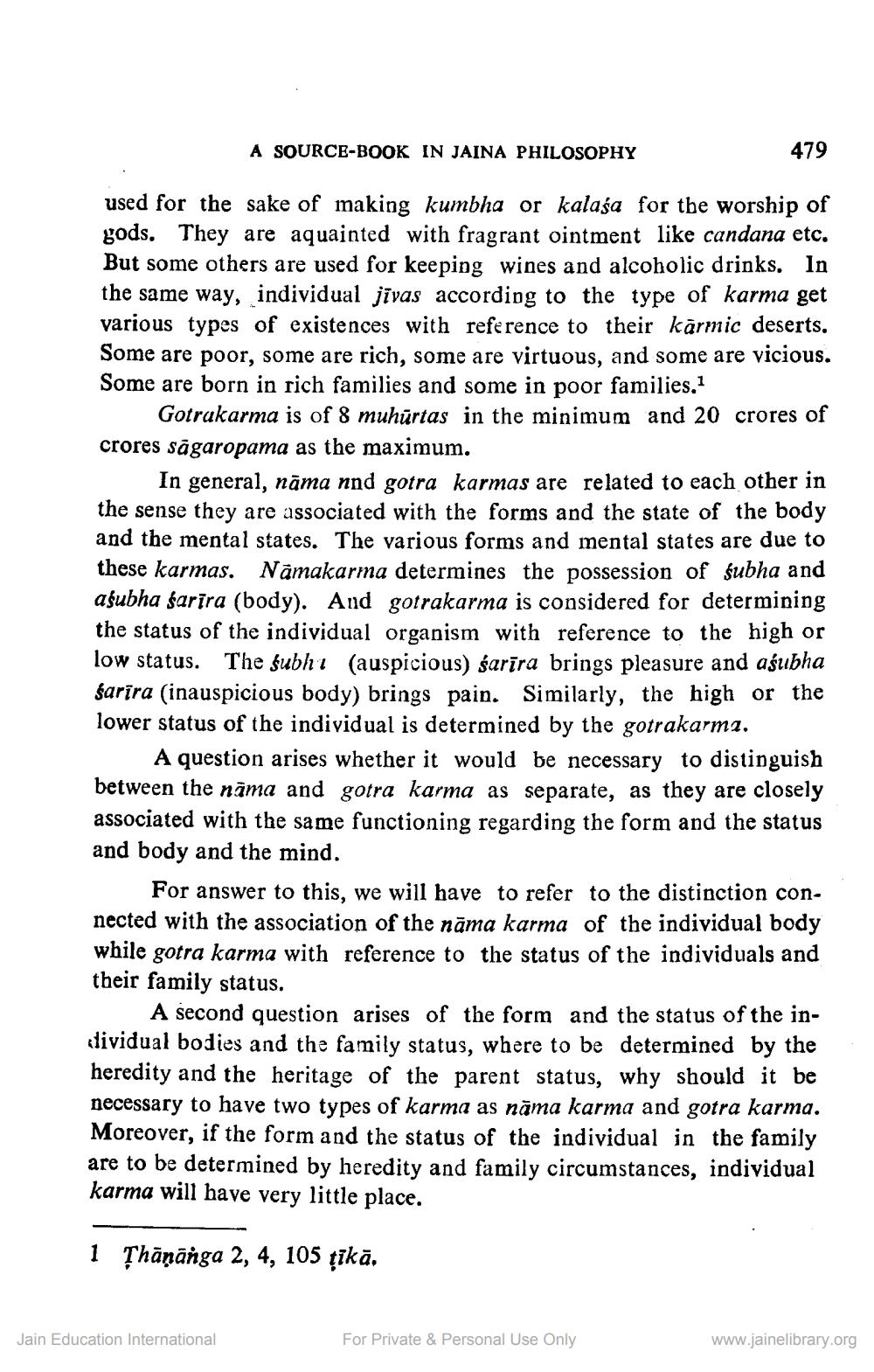________________
A SOURCE-BOOK IN JAINA PHILOSOPHY
used for the sake of making kumbha or kalasa for the worship of gods. They are aquainted with fragrant ointment like candana etc. But some others are used for keeping wines and alcoholic drinks. In the same way, individual jīvas according to the type of karma get various types of existences with reference to their karmic deserts. Some are poor, some are rich, some are virtuous, and some are vicious. Some are born in rich families and some in poor families.1
Gotrakarma is of 8 muhurtas in the minimum and 20 crores of crores sāgaropama as the maximum.
In general, nāma nnd gotra karmas are related to each other in the sense they are associated with the forms and the state of the body and the mental states. The various forms and mental states are due to these karmas. Namakarma determines the possession of subha and asubha sarira (body). And gotrakarma is considered for determining the status of the individual organism with reference to the high or low status. The subh (auspicious) sarīra brings pleasure and aśubha śarīra (inauspicious body) brings pain. Similarly, the high or the lower status of the individual is determined by the gotrakarma.
479
A question arises whether it would be necessary to distinguish between the nama and gotra karma as separate, as they are closely associated with the same functioning regarding the form and the status and body and the mind.
For answer to this, we will have to refer to the distinction connected with the association of the nama karma of the individual body while gotra karma with reference to the status of the individuals and their family status.
Jain Education International
A second question arises of the form and the status of the individual bodies and the family status, where to be determined by the heredity and the heritage of the parent status, why should it be necessary to have two types of karma as nāma karma and gotra karma. Moreover, if the form and the status of the individual in the family are to be determined by heredity and family circumstances, individual karma will have very little place.
1 Thānanga 2, 4, 105 țīkā.
For Private & Personal Use Only
www.jainelibrary.org




